News
Your Facebook profile exposes your intimate secrets: Research

Using a dataset of more than 58,000 U.S. Facebook users, University of Cambridge researchers predicted race, age, IQ, sexuality, personality, substance use and political views using Likes alone.
New research, published today in the journal PNAS, shows that surprisingly accurate estimates of Facebook users’ race, age, IQ, sexuality, personality, substance use and political views can be inferred from automated analysis of only their Facebook Likes – information currently publicly available by default.
In the study, researchers describe Facebook Likes as a “generic class” of digital record – similar to web search queries and browsing histories – and suggest that such techniques could be used to extract sensitive information for almost anyone regularly online.
Researchers at Cambridge’s Psychometrics Centre, in collaboration with Microsoft Research Cambridge, analysed a dataset of over 58,000 US Facebook users, who volunteered their Likes, demographic profiles and psychometric testing results through the myPersonality application.
Users opted in to provide data and gave consent to have profile information recorded for analysis. Facebook Likes were fed into algorithms and corroborated with information from profiles and personality tests.
Researchers created statistical models able to predict personal details using Facebook Likes alone. Models proved 88% accurate for determining male sexuality, 95% accurate distinguishing African-American from Caucasian American and 85% accurate differentiating Republican from Democrat. Christians and Muslims were correctly classified in 82% of cases, and good prediction accuracy was achieved for relationship status and substance abuse – between 65 and 73%.
But few users clicked Likes explicitly revealing these attributes. For example, less that 5% of gay users clicked obvious Likes such as Gay Marriage. Accurate predictions relied on ‘inference’ – aggregating huge amounts of less informative but more popular Likes such as music and TV shows to produce incisive personal profiles.
Even seemingly opaque personal details such as whether users’ parents separated before the user reached the age of 21 were accurate to 60%, enough to make the information “worthwhile for advertisers”, suggest the researchers.
While they highlight the potential for personalised marketing to improve online services using predictive models, the researchers also warn of the threats posed to users’ privacy. They argue that many online consumers might feel such levels of digital exposure exceed acceptable limits – as corporations, governments, and even individuals could use predictive software to accurately infer highly sensitive information from Facebook Likes and other digital ‘traces’.
The researchers also tested for personality traits including intelligence, emotional stability, openness and extraversion. While such latent traits are far more difficult to gauge, the accuracy of the analysis was striking. Study of the openness trait – the spectrum of those who dislike change to those who welcome it – revealed that observation of Likes alone is roughly as informative as using an individual’s actual personality test score.
Some Likes had a strong but seemingly incongruous or random link with a personal attribute, such as Curly Fries with high IQ, or That Spider is More Scared Than U Are with non-smokers.
When taken as a whole, researchers believe that the varying estimations of personal attributes and personality traits gleaned from Facebook Like analysis alone can form surprisingly accurate personal portraits of potentially millions of users worldwide.
They say the results suggest a possible revolution in psychological assessment which – based on this research – could be carried out on an unprecedented scale without costly assessment centres and questionnaires.
“We believe that our results, while based on Facebook Likes, apply to a wider range of online behaviours.” said Michal Kosinski, Operations Director at the Psychometric Centre, who conducted the research with his Cambridge colleague David Stillwell and Thore Graepel from Microsoft Research.
“Similar predictions could be made from all manner of digital data, with this kind of secondary ‘inference’ made with remarkable accuracy – statistically predicting sensitive information people might not want revealed. Given the variety of digital traces people leave behind, it’s becoming increasingly difficult for individuals to control.
“I am a great fan and active user of new amazing technologies, including Facebook. I appreciate automated book recommendations, or Facebook selecting the most relevant stories for my newsfeed,” said Kosinski. “However, I can imagine situations in which the same data and technology is used to predict political views or sexual orientation, posing threats to freedom or even life.”
“Just the possibility of this happening could deter people from using digital technologies and diminish trust between individuals and institutions – hampering technological and economic progress. Users need to be provided with transparency and control over their information.”
Thore Graepel from Microsoft Research said he hoped the research would contribute to the on-going discussions about user privacy: “Consumers rightly expect strong privacy protection to be built into the products and services they use and this research may well serve as a reminder for consumers to take a careful approach to sharing information online, utilising privacy controls and never sharing content with unfamiliar parties.”
David Stillwell from Cambridge University added: “I have used Facebook since 2005, and I will continue to do so. But I might be more careful to use the privacy settings that Facebook provides.”
Source: Press Release University of Cambridge
News
HP Govt Employees to Get Higher Pay Scale on Completion of Two Years of Service: CM Jairam
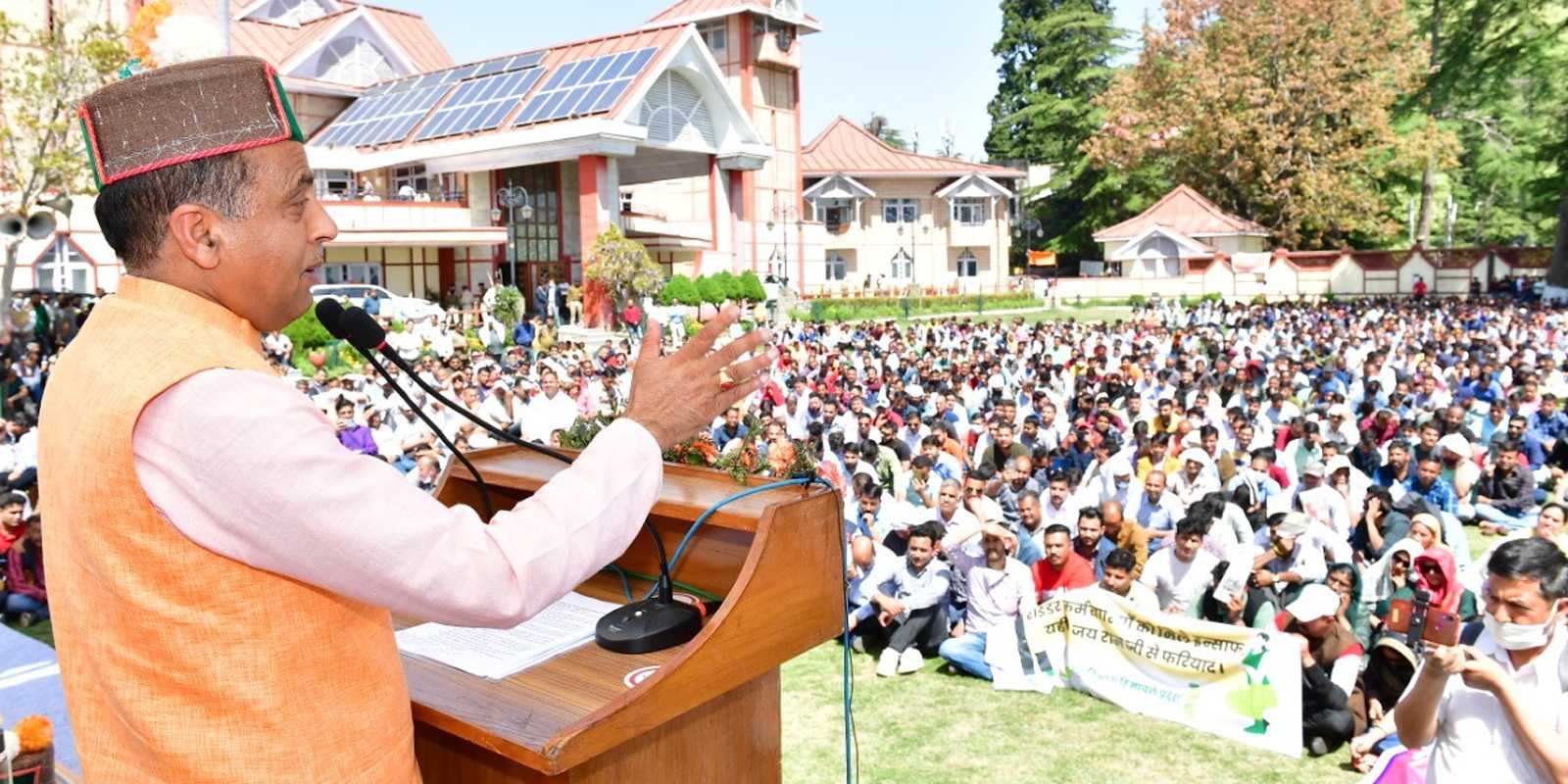
Shimla-Himachal Pradesh Government employees working in different departments before January 3, 2022, would be given a higher scale at par with other employees on completion of two years tenure of regular service. A higher pay scale was also announced for the Junior Office Assistants (IT) on completion of two years of regular service.
Chief Minister Jairam Thakur made these announcements during the Karamchari Maha Sammelan of the Himachal Pradesh Non-Gazetted Employees Federation at the hotel Peterhof on Sunday.
He appreciated the role played by the employee especially frontline workers in the battle against the pandemic.
He said most of the government employees in the state have been given revised pay scales and on average, every employee has got the benefit of a 12 to 15 percent salary hike. There has also been an increase in the pension of about 1.50 lakh pensioners of the state. The financial benefits of Rs. 7801 crore have been given to state government employees and pensioners from the year 2018 to 2022. The pensioners who retired before 2016 are getting the benefit of a 15 to 20 percent increase in the pension while around 40 thousand pensioners who retired after 2016 would be benefitted soon, he said.
He said the daily wages were Rs. 210 in the year 2017 which has been increased by the present state government to Rs. 350. Similarly, 12 per cent interim relief annually has been provided to government employees and pensioners during the present government’s tenure. He said the Himachal government has provided Dearness Allowance to its employees and pensioners on the lines of Punjab and Central governments from the due date. The Punjab government has given only 5 percent interim relief to the employees while the Himachal government has provided 21 percent interim relief to its employees.
“Out of the total interim relief amount given to the employees and pensioners amounting to about Rs. 6500 crore, Rs. 3500 crore has been paid during the tenure of our government” added the Chief Minister.
He said that the state government has increased the government contribution for NPS employees from 10 percent to 14 percent benefitting more than one lakh employees. The NPS employees are being given the benefits of retirement and death gratuity at par with employees falling under the old pension scheme. The government has also increased the upper limit of death gratuity from Rs. 10 lakh to Rs. 20 lakh.
The Chief Minister said the state government has also increased the honorarium of para-workers working in various departments. The salary of outsource workers has been hiked by Rs 1,500 per month.
Non-Gazetted Employees Federation President Ashwani Thakur thanked the Chief Minister for providing various financial and other benefits to different categories of government employees.
Nation
Most Covid Restrictions to be Lifted From March 31, Mask and Hand Hygiene to Continue
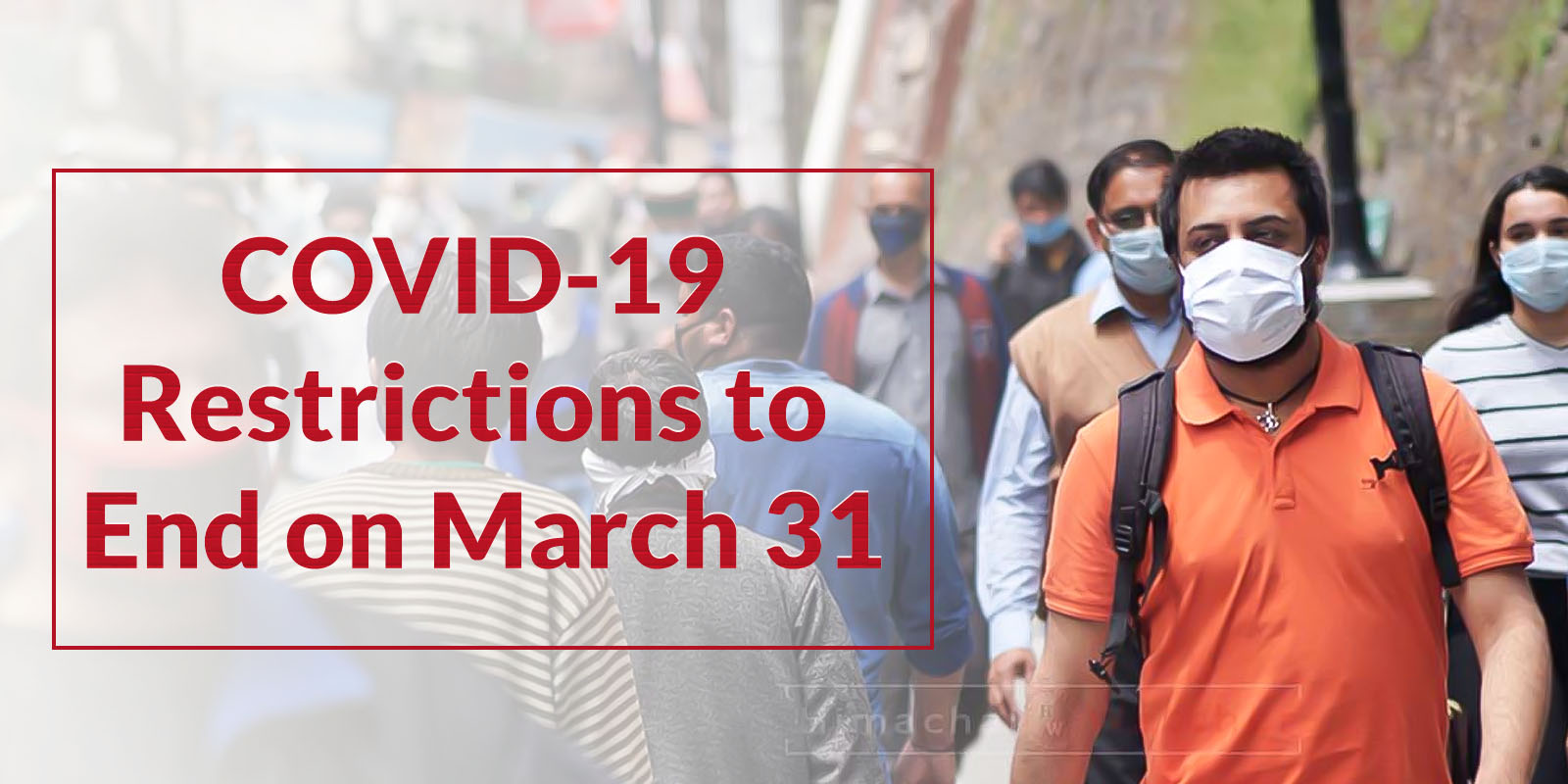
New Delhi-The Centre has issued a notification to the States informing that the provisions of the Disaster Management (DM) Act, 2005 will not be invoked in the country after March 31. The Union Health Ministry said that the use of face masks and following hand hygiene will continue.
It implies that most of the Covid-related rules and restrictions would end.
Union Home Secretary Ajay Bhalla issued the notification which said that the decision was taken following the overall improvement in the situation and the preparedness of the government in dealing with the COVID-19 pandemic.
However, local authorities and State police can still invoke fines and criminal cases against persons violating COVID-19 norms under the Indian Penal Code (IPC), a senior government official said.
The DM Act was invoked on March 24, 2020, due to the pandemic
“Over the last seven weeks or so there has been a steep decline in the number of cases. The total caseload in the country stands at 23,913 only and the daily positivity rate has declined to 0.28%. It is also worth mentioning that with the combined efforts, a total of 181.56 Cr vaccine doses have been administered,” the notification said.
“I would like to mention that in view of the nature of the disease, we still need to remain watchful of the situation. Wherever any surge in the number of cases is observed, the States/UTs may consider taking prompt and proactive action at a local level, as advised by MoHFW (Health Ministry) from time to time,” the notification said.
The Indian government had issued various guidelines and measures for the first time on March 24, 2020, under the Disaster Management Act to curb the COVID-19 situation in the country, which have been modified several times thereafter.
India currently has 23,087 active COVID-19 cases and recorded 1,778 new cases and 62 deaths in the last 24 hours. The daily positivity rate has also declined to 0.28%.
News
HP Cabinet Decisions: Country Liquor Made Cheaper in New Excise Policy, Read All Decisions
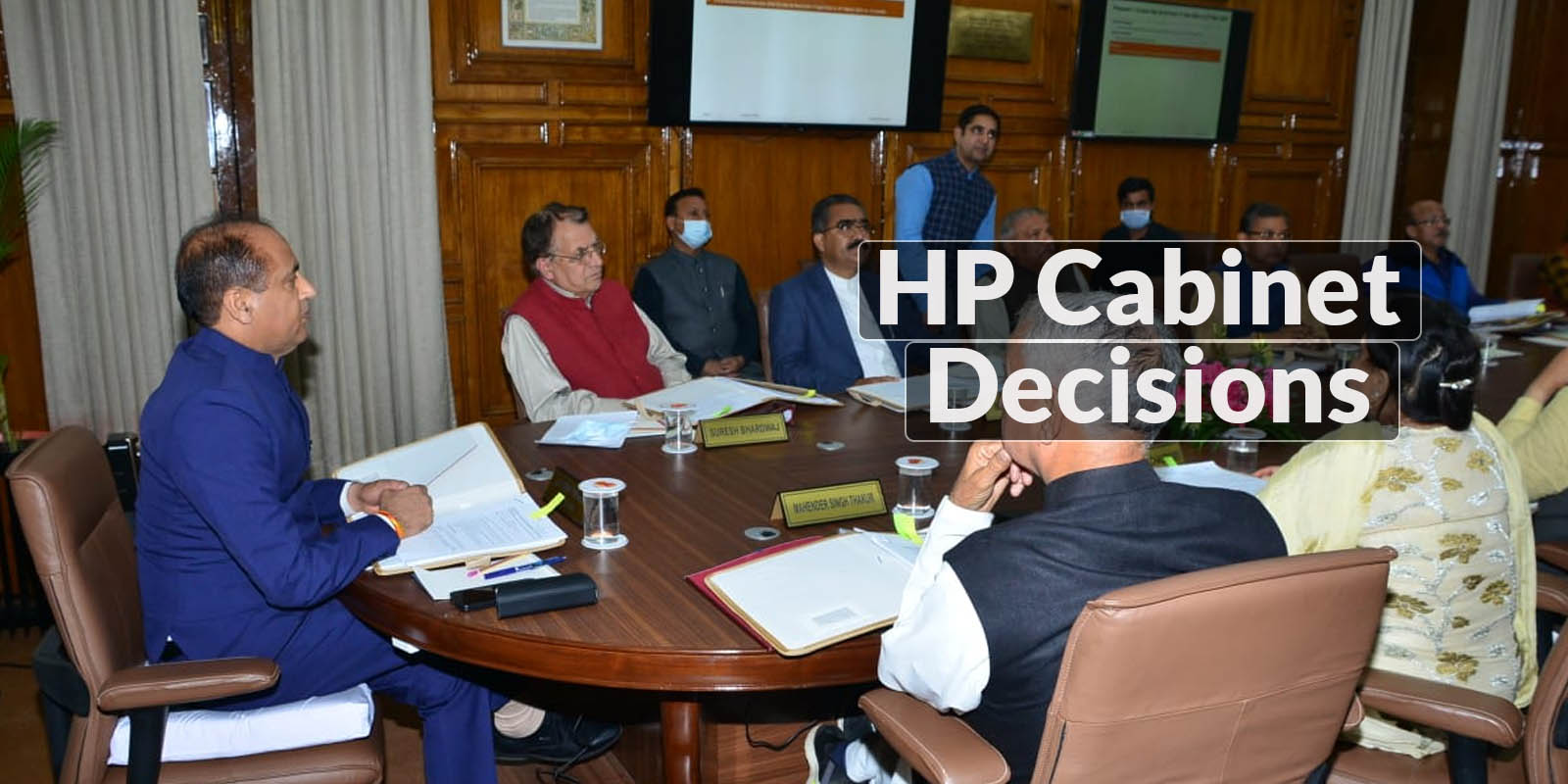
Shimla-A meeting of the Himachal Pradesh Cabinet was held on March 20, 2022, under the chairmanship of Chief Minister Jai Ram Thakur.
The excise policy for the financial year 2022-23 was approved. Approval was also given for the renewal of retail excise vends in the state for the financial year 2022-23 at the renewal fees of 4% of the value of unit/vend.
The State Government said that wants to enhance the government revenue and curb the smuggling of country liquor from the neighbouring states by a reduction in its price.
The brands of Country Liquor will be cheaper as license fees have been reduced. This will help in providing good quality liquor at a cheaper rate to the consumers.
In the new excise policy, the 15% fixed quota of country liquor for manufacturers and bottlers to be supplied to the retail licensees has been abolished. According to the government, this step will give the retail licensees to lift their quota from the suppliers of their choice and further assure the supply of good quality country liquor at competitive prices. The MRP of country liquor will be cheaper by 16% of the existing price.
In this year’s policy, the Gaudhan Vikas Nidhi Fund has been enhanced by Re.1/- from the existing Rs.1.50 to Rs.2.50.
The fixed annual license fee of Bars has been rationalized by abolishing the area-specific slabs of license fee. Now throughout the State, there will be uniform license slabs based upon the room capacity in hotels.
Rates of the annual fixed license fee of Bars in the tribal areas has been reduced considerably.
Further, all the above stakeholders will have to install CCTV cameras at their establishments as it was made mandatory for them.
Wholesale vends and retail vends, the penalty provisions under the H.P. Excise Act, 2011 have been made more stringent.
An end to end online Excise Administration System would be established in Himachal Pradesh, the government said.
HP Government estimates a collection of Rs 2131 crore revenue during the year, which will be Rs. 264 crores higher than the financial year 2021-22 – growth of 14% in state excise revenues.
The Cabinet also gave its nod to amend Himachal Pradesh Disaster Relief Manual-2012 to include deaths due to biting of honey bees, hornet and wasps, accidental drowning and deaths due to accidents of vehicles (including land, water and air) under this Manual.
The Cabinet gave its approval for filling up 11 posts of ‘A’ Class Tehsildar in Revenue Department through direct recruitment on regular basis through Himachal Pradesh Public Service Commission.
HP State Toll Policy 2022-23
The HP Cabinet also gave its nod to HP State Toll Policy for the year 2022-23 which envisages auction cum tender for all the toll barriers in the State. During the year 2021-22, toll revenue has registered a growth of 20 percent of the previous year’s revenue.




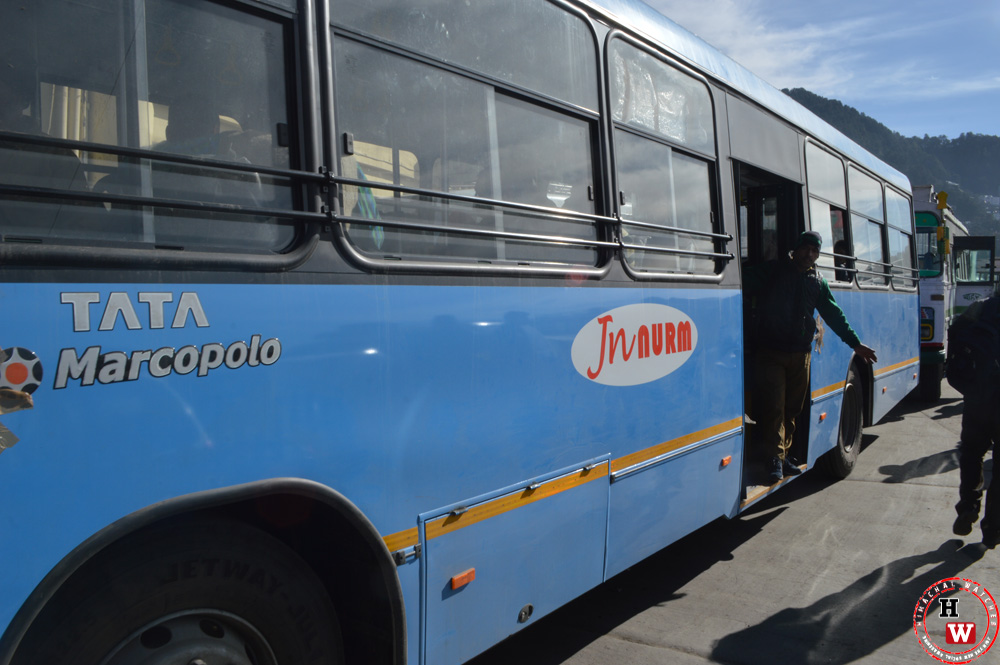
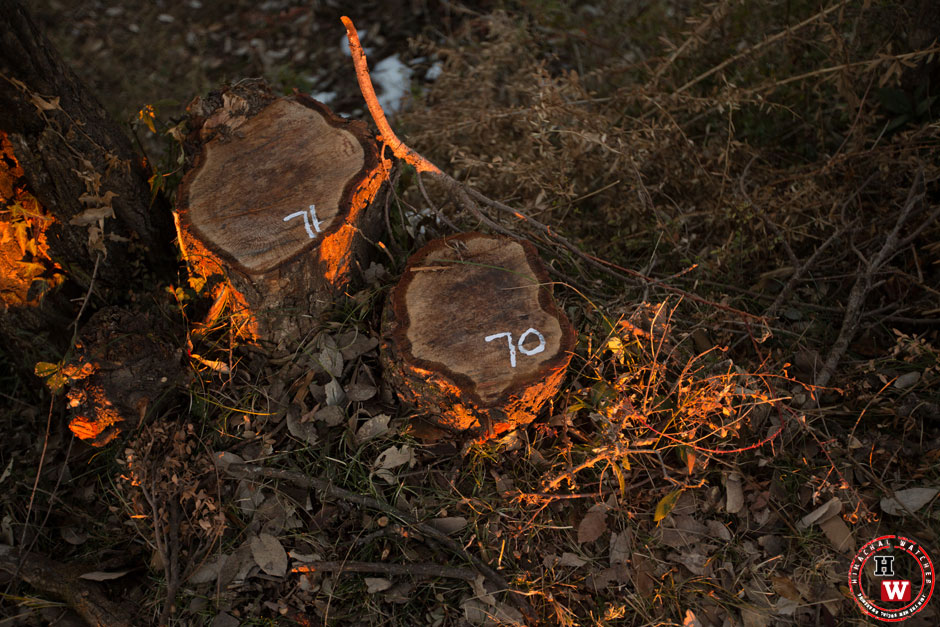






 Home Decor Ideas 2020
Home Decor Ideas 2020
